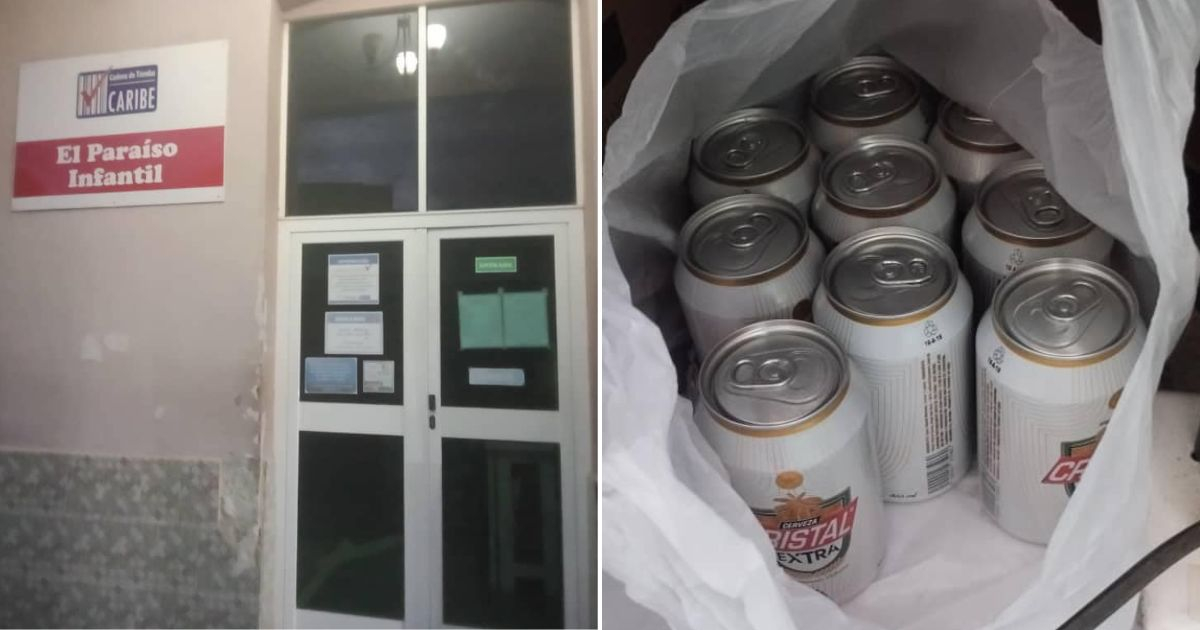The government of Villa Clara province, responding to public complaints, uncovered several instances of favoritism and hoarding of goods in stores and sales points in the Manicaragua municipality. The official Facebook profile of Inspección Villa Clara reported that the most notable violations were found at the El Paraíso Infantil store, where inspectors discovered hoarding and favoritism in merchandise distribution.
Inspectors found six boxes of Popular Rojo cigarettes, a can of sweet corn, and ten cans of Cristal beer hidden under the cashier's counter. None of these items were available for public sale, and the cashier could not provide purchase receipts, suggesting the goods were being hoarded for personal use or to favor certain customers.
Furthermore, at the same sales point, inspectors discovered 105 wheels of H. Upmann and Selecto cigars, valued at 140 pesos each, that were neither displayed nor registered as overstock. These products, intended for public sale, were hidden, indicating clear favoritism and a direct violation of pricing and supply regulations.
The official profile also reported multiple violations of Resolution 225/2024 in food service points, revealing abusive pricing practices and the sale of substandard products.
Price Violations and Substandard Goods Found in Food Service Points
At the CP Matagua food service point, 340-gram sausages were being sold for 450 pesos, while the maximum allowed price by the resolution was 355.30 pesos. This 94.70 peso overcharge represents a clear violation of the regulation. Additionally, 33 packages of 9-gram button candies with an expiration date of August 7, 2024, were confiscated for failing to meet required quality standards.
Similar infractions were discovered at the CP Ceibabo food service point. Packages of 250-gram noodles were being sold for 250 pesos, while the resolution set the price at 208.75 pesos, resulting in a 41.25 peso overcharge per package. Moreover, another establishment was selling boxes of Popular bodega cigarettes at 120 pesos and 330 ml sodas at 60 pesos, both exceeding the established price limits.
Those responsible for the detected violations were fined according to Decree 30/21, with penalties ranging from 8,000 to 10,000 pesos. Additional disciplinary actions against the responsible entities were requested, the infringing products were seized, and the potential cancellation of involved projects was proposed.
Recently, after verifying the price violations, the Villa Clara government mandated forced sales of goods at an agricultural fair in the Placetas municipality. The official profile reported multiple pricing violations at the fair, leading to the forced sale of the infringing merchandise.
Earlier this month, the provincial government imposed fines of up to 15,000 pesos on individuals involved in corruption in several hotels in the province.
In June, the Villa Clara Provincial Inspection Directorate uncovered severe violations in several pharmacies in Santa Clara city during an audit prompted by public complaints. Leticia Alfonso, director of the entity, confirmed that all reported incidents were verified during a surprise inspection, and fines were imposed according to Decree 30 of 2021 for incidents related to theft and shortages, as noted in a Facebook post by the Villa Clara Provincial Government.
Understanding the Violations in Villa Clara
Here are some frequently asked questions to help clarify the recent events in Villa Clara regarding favoritism and hoarding of goods.
What were the main products found hoarded in Villa Clara?
Inspectors found six boxes of Popular Rojo cigarettes, a can of sweet corn, and ten cans of Cristal beer hidden under a cashier’s counter. Additionally, 105 wheels of H. Upmann and Selecto cigars were discovered hidden and not available for public sale.
What pricing violations were found in the food service points?
Violations included selling 340-gram sausages for 450 pesos (when the maximum allowed price was 355.30 pesos), 250-gram noodle packages for 250 pesos (should have been 208.75 pesos), and various other products priced above the established limits.
What actions were taken against those responsible for the violations?
The responsible parties were fined between 8,000 and 10,000 pesos according to Decree 30/21. Additional disciplinary actions were requested against the entities involved, the infringing products were seized, and the potential cancellation of the projects was proposed.
